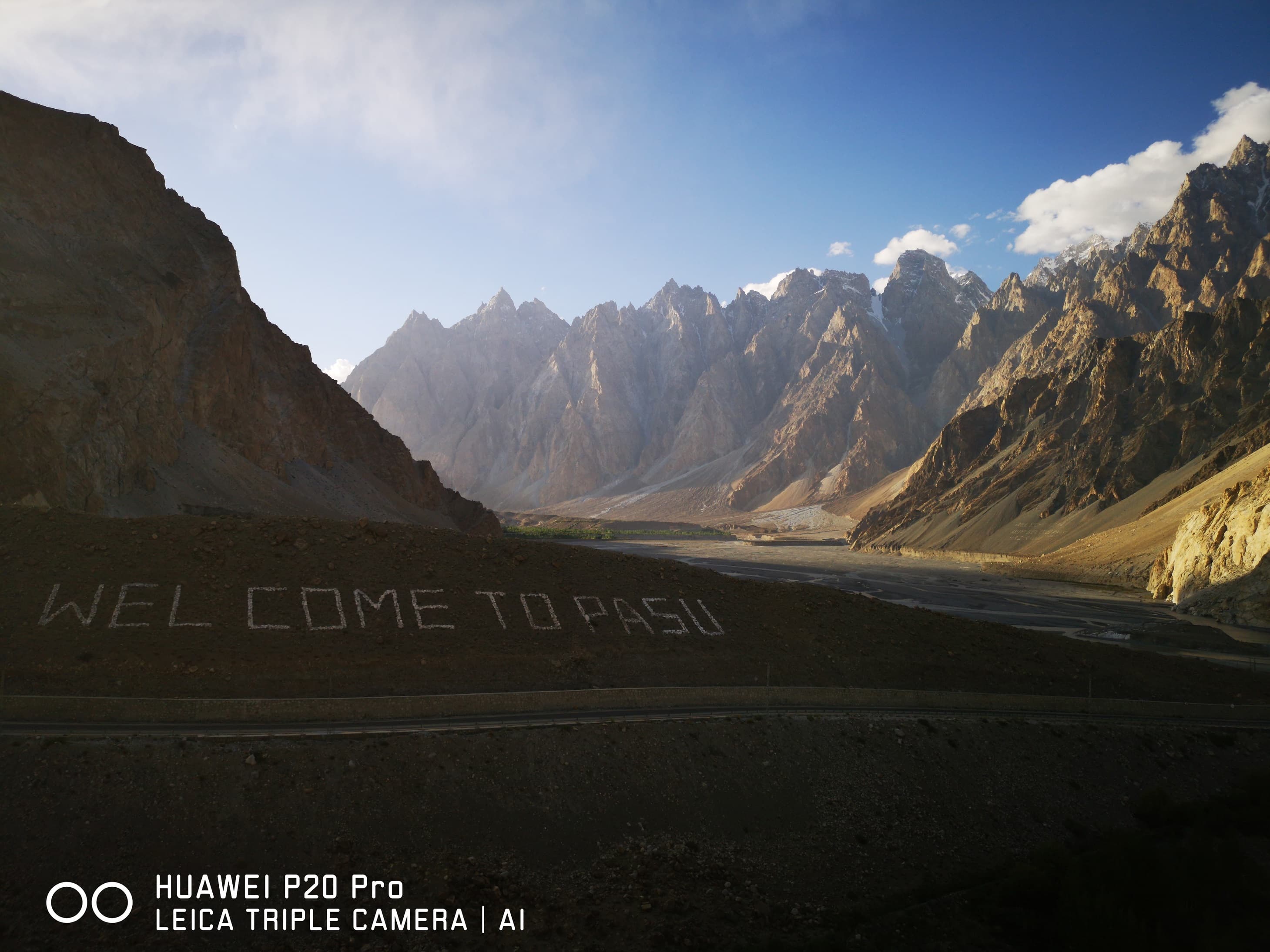Huawei P20 Pro or Samsung Galaxy S9+: Which camera is better?
This content is a paid advertisement by Huawei and is not associated with or necessarily reflective of the views of Dawn.com and its editorial staff.
Smartphone manufacturers are going all out to woo customers with great camera set-ups, from Samsung Galaxy S9+’s variable apertures, to Huawei P20 Pro’s triple cameras.
Samsung’s Galaxy S9+, for example, boasts of “the world’s first variable aperture” phone camera. On the other hand, Huawei has just launched its P20 Pro, touting it to be “the world’s first triple-camera set-up” on a phone.
But which “first” is the best?
Given every smartphone worth its salt these days can capture perfectly fine photos under great lighting conditions, I decided to pit the two new flagship models against each other to find out which performs best in challenging shooting conditions – such as daylight and night scenes or zoom shots.
All my photos are shot in auto and pro mode with no post-processing or lighting tweaks, as I want to mimic the point-and-shoot method that the average consumer tends to use.
Daylight

Huawei P20 Pro: The shot has better colors with more vibrant blues. Its details are sharp which includes the mountains and nearby subjects. The sky and clouds are well-exposed as well.

Samsung Galaxy S9+: The samples from the S9+ produce a warm tone. Details are sharper with better-exposed mountains and trees. The sky, though, is not as dynamic as its counterpart. The dynamic range of S9+ is not really as impressive as compared to P20 Pro. When it comes to colour, the greens and yellows have more punch.
Winner: The Huawei P20 Pro is my winner for achieving a good balance between colours, exposure, and sharpness.
Zoom
Huawei P20 Pro is capable of achieving 3x optical zoom, 5x hybrid zoom and 10x digital zoom while the Samsung Galaxy S9+ has 2x optical and up to 10x digital zoom. Let’s compare both on different zooming options.
1x zoom

Huawei P20 Pro: This phone performed way better than the S9+ by providing a brighter image. It has good details and colours.

Samsung Galaxy S9+: The S9+ produced a decent result too, by illuminating dark areas while keeping noise at bay. Details and colours are well preserved as well.
Winner: In my opinion, the Huawei P20 Pro takes the lead in this category for having the brightest shot with good colours and decent details.
3x zoom in low light

Huawei P20 Pro: It seems to be the most versatile in zoom and can achieve 3x optical zoom, 5x hybrid and 10x digital zoom. The shot is better exposed with preserved details and contrast. Noise is evident though, in the sky.

Samsung Galaxy S9+: For me, the S9+ was a little behind as compared to the P20 Pro in terms of quality. While it does have better illumination and good details, the lights are overexposed as can be seen in the sky. Noise is also evident.
Winner: I’d personally pick the Huawei P20 Pro for a better-exposed zoom shot in low-light situations.
Portrait

Huawei P20 Pro: This smartphone camera has a good bokeh effect but with more life-like colors and sharper details. The subject pops out better.

Samsung Galaxy S9+: The S9+’s bokeh effect is not that noticeable. The background is more illuminated compared to the P20 Pro, but the subject’s details are smudgy with dull colors.
Winner: In my opinion, I think the Huawei P20 Pro performs better with its good bokeh effect, sharp details, and good colour reproduction.
Night photography

When shooting at night, the P20 Pro was able to achieve a cleaner shot with properly exposed subjects. Although noise is evident, the colours and details are still preserved.

The Galaxy S9+, on the other hand gave some smudgy shots with very evident noise which can be seen in the buildings and dark areas. Additionally, the S9+ doesn’t have a special night photography feature like the P20 Pro.
Artificial Intelligence (AI)
Huawei P20 Pro is a pioneer when it comes to AI. It has 19 built-in presets which recognise the scenes and adjust camera settings accordingly.

If I point the lens towards the sky, it automatically prompts “blue sky” and adjusts the exposure according to available light and colors. If I try to shoot a waterfall, it will automatically detect the scene too and changes the settings for long exposure to achieve silky smooth water effect.

In the shot above, I just exposed the scene on auto mode and it automatically prompted “blue sky”. Macro contrast of overall scene is dramatic.

On the other hand, the S9+ doesn’t have these features. It exposes the scene normally and the macro contrast is out of balance.
Conclusion
Picking a winner between the Huawei P20 Pro and Samsung Galaxy S9+ is not easy. There’s no question that the S9+ has a balanced camera system, and it performed admirably in every situation.
The P20 Pro’s camera, in my opinion, performs a little better in terms of colours, sharpness and macro contrast. Huawei’s system has some extra features like Silky Water, Light Trails, Night Photography & AI which makes it a great choice for photography enthusiasts.
All photos have been shot by the author using the Huawei P20 Pro & the Samsung Galaxy S9+. The images are non-edited and non-retouched.



